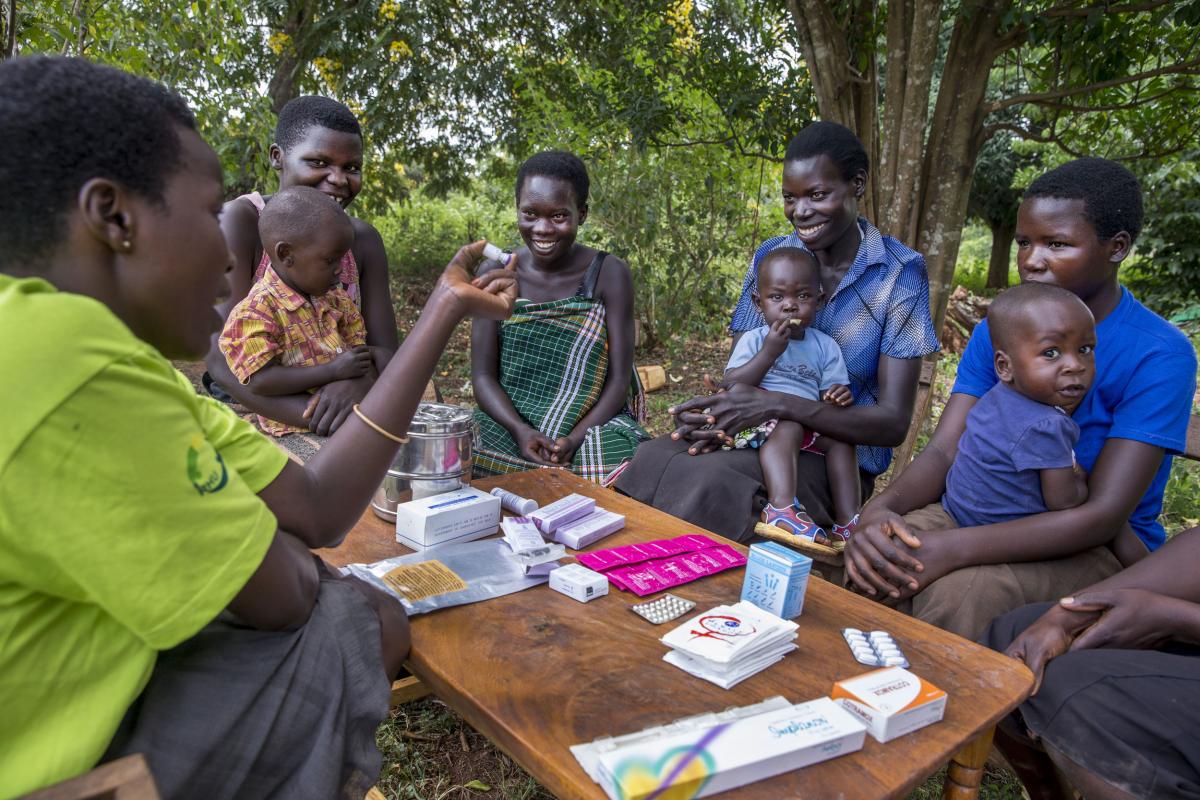
In June, Kapchorwa district council in Uganda approved a framework developed entirely by local community stakeholders to monitor and track family planning supplies to the last mile. The first of its kind, the plan does not require funding and involves all stakeholders in the commodity supply chain to ensure that each one safeguards access to family planning and reproductive health commodities.
The Uganda Ministry of Health reports incidents of stock-out—many service delivery points go without receiving commodities for as long as six months. Meanwhile, some facilities face stock accumulation, which leads to commodities expiring before making it to users. These issues speak to delivery inefficiencies in the supply chain rather than a lack of commodities in the country.
Through the Opportunity Fund, Advance Family Planning (AFP) local partner Reproductive Health Uganda (RHU) consulted with Access Global Ltd and community members in Kapchorwa district to develop community-based strategies to address the supply chain bottlenecks. The Opportunity Fund, administered by PAI with the support of AFP, is a funding mechanism enabling advocates to seize opportunities to strengthen Family Planning 2020 commitments and their implementation at the local, national, and regional level.
In December 2017, RHU and Access Global Ltd facilitated training sessions on social accountability and health rights using the CARE International Community Score Card—a guide that empowers communities to participate in providing essential information and constructive feedback. Fifteen select community members attended: representatives from the village health team, women, youth, and health unit management committees. As active members of community, all participants in turn mobilized their networks and engaged duty bearers.
The trained community members and Access Global Ltd conducted key informant interviews and community dialogues and researched archival records to collect detailed data on stock-outs, accumulations, and expiries; key bottlenecks in the supply chain; and power centers in private and public health facilities.
After months of research, in April 2018, RHU and Access Global facilitated a workshop to discuss the findings with the trained community members and partners from the district family planning advocacy working group. Based on the data, they developed a framework for the district to track and monitor supplies. The framework includes:
- conducting monthly drug monitoring reports for district health offices,
- integrating family planning into an existing supervision tool, and
- including community feedback on contraceptives and services into reports by village health teams and implementing partners.
Between April and June, the advocacy team presented their outputs to the district health team, the social services committee, and the district executive committees—all of whom endorsed the ask for the local government to adopt and approve the community-led oversight framework. In June, the secretary for social services presented it to the Kapchorwa district council. With the endorsement of keycommittees, the strategies were approved by the council with no objections.
Going forward, RHU will continue working with the district health office on roll-out. They are documenting the process with the aim of replicating in other districts.

